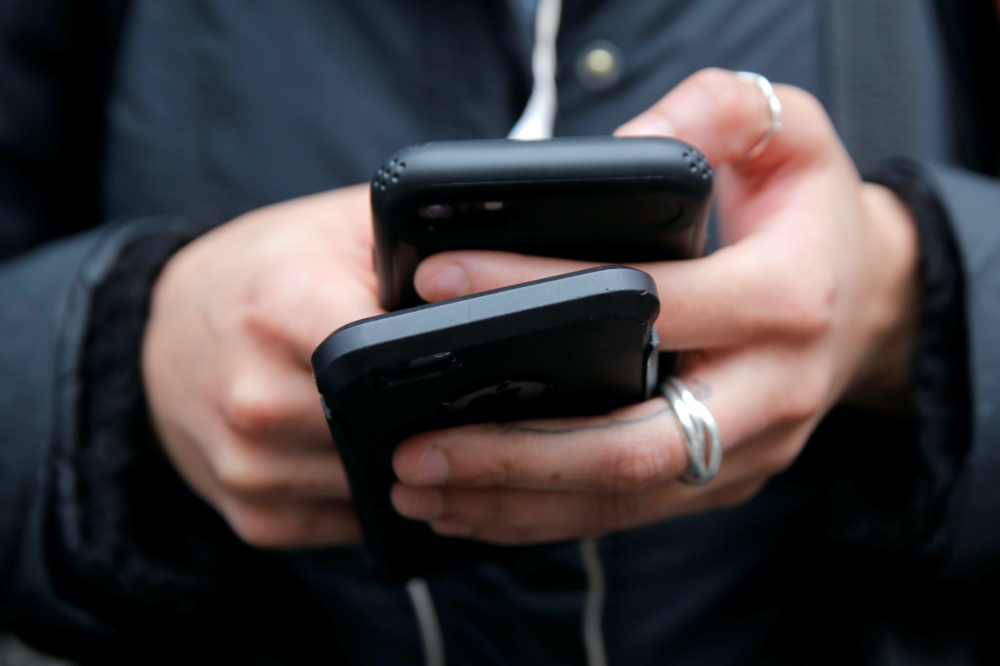Internet conspiracy theories from furniture companies selling children to face masks aiding kidnappings have led to a surge in calls to human trafficking tiplines, experts said on Wednesday, urging people to not to spread misinformation.
A cyber hotline run by the National Center for Missing and Exploited Children received 1.6 million reports in May, more than double the roughly 700,000 it said it received in May, 2019.

A woman uses her cell phones in Manhattan, New York, US, on 30th January, 2018. PICTURE: Reuters/Andrew Kelly/File photo.
Fuelling the surge is upheaval due to the coronavirus pandemic and online sex trafficking posts that went viral, said experts in the field.
“As we’re in this pandemic and we’re dealing with the shutdowns, we know that traffickers are capitalising on the chaos that’s been created,” said US anti-trafficking Ambassador John Richmond, speaking on a panel organised by the US State Department.
Anti-trafficking groups must address the surge from internet posts while trying not to discourage reports, he added in comments to the Thomson Reuters Foundation.
“Obviously there’s been a huge influx,” he said.
Online posts spreading misinformation have gone viral on the internet, said Melissa Snow, NCMEC’s executive director of child sex trafficking programs.
“Report it, get it to law enforcement…but don’t continue to share it in a viral way because then that just overwhelms hotlines,” she said, speaking on the State Department panel.
In recent months, false rumours have travelled the internet such as one that US home goods site Wayfair was trafficking children, prompting the company to deny the claim.
Other viral posts about face masks aiding in the abduction of children fueled calls to the tipline, Snow said.
“Both of these examples fall way outside the margin of what we typically see,” Snow said. “It’s incorrectly educating people on what trafficking looks like.”
In July, Polaris, which runs the National Human Trafficking Hotline, said the volume of calls linked to posts about Wayfair was making it harder to provide support to those who needed help.
Beyond the viral posts, the NCMEC tipline saw a concerning increase in reports of child sexual abuse during pandemic lockdowns, Snow said.
Activists around the world have warned that online child sex abuse has risen during the global coronavirus pandemic.
The ambassador said the US Government was launching a fund to help anti-trafficking organisations deal with adverse effects from the pandemic lockdowns on their work.
Grants of $US100,000 to $US1 million would be available, he said.
He added that increased attention to the issue of trafficking provided an opportunity “to push out good, positive data-driven facts.”
About 25 million people worldwide are estimated to be victims of forced labor with almost five million people in forced commercial sex, according to the International Labour Organization and nonprofit Walk Free Foundation.






